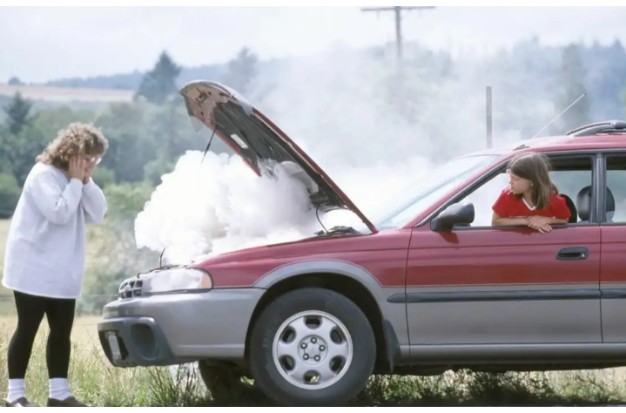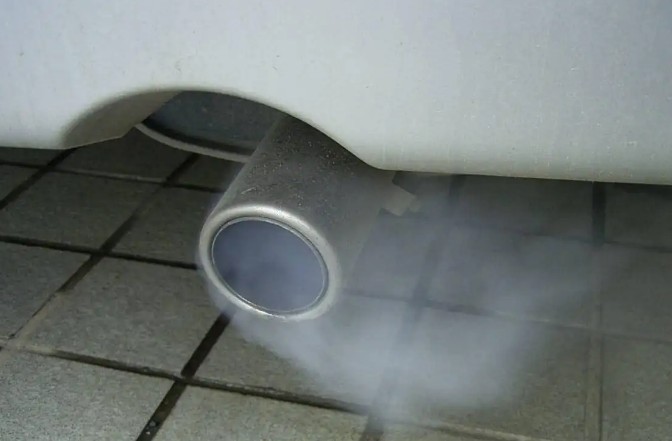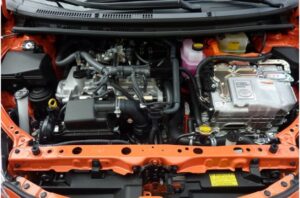
What to Do When Your Car Overheats – Causes & Reasons
An overheated engine is one of the most serious issues that your car could experience. When an engine gets too hot, it may start to warp and crack, sometimes resulting in permanent damage. However, what results in an engine overheating? Below, we’ll discuss six possible causes.
We’ll take a moment to explain what to do if you have this issue before we discuss what might be overheating your engine. Turning off the air conditioning, rolling down the windows, and cranking up the heater should be done first. Even though it might be uncomfortable in warm weather, losing your engine is preferable. Then, as soon as it’s safe to do so, pull over to the side of the road and turn the engine off.
What Causes Engine Overheat?
There are several causes of engine overheating. In general, this is due to a problem with the cooling system, which prevents heat from leaving the engine compartment. A leak in the cooling system, a malfunctioning radiator fan, a damaged water pump, or a clogged coolant hose could all be the cause of the problem.
Whatever the cause, you don’t want to let an overheating engine persist. Your engine may sustain severe, if not irreparable, damage.
Damaged Radiator
The place where the coolant goes to regain its cool is the radiator itself. Therefore, the coolant may remain too warm if the radiator has sustained damage. Radiators can malfunction for a variety of reasons. For instance, the radiator fan might have burned out, or the radiator itself might have been physically harmed in an accident. Radiators can occasionally be repaired, but it’s usually a good idea to have them replaced.
Bad Hoses
The hoses are where the coolant travels through as it passes between the engine and the radiator. Hoses that are damaged, cracked, dislodged, or clogged may let coolant leak or simply obstruct its flow.
Low Or Contaminated Coolant
Naturally, if there is a problem with the coolant itself, even if the water pump functions, it won’t be much use. The engine won’t be sufficiently cooled if there isn’t enough in the system. Additionally, the coolant won’t function as well and might not be able to absorb as much heat if it contains contaminants.
A Malfunctioning Thermostat
The thermostat delays allowing coolant into the engine until it has warmed up. This implies that your car will heat up more quickly and start running. The thermostat might not open and allow the coolant to flow in when it should, though, if it is broken.
Signs Your Engine Is Overheating
You may lessen the possibility of permanent engine damage if you can take action to cool your engine before it overheats to the point of failure. But first, you’ve got to notice the symptoms of overheating, which can include:
- Coming from underneath the hood of the car is steam, which can resemble smoke.
- An engine temperature gauge on your dashboard that spikes to “H” or into the red. (Consult your owner’s manual for the specific symbols used on your engine temperature gauge.)
- There was an odd odor coming from the engine area. For instance, leaking coolant may smell sweet, whereas leaking oil may smell more burnt.
Follow these instructions and get in touch with your local repair shop as soon as you notice the engine overheating.

What To Do When Your Engine Overheats
1. Turn Off The Ac And Up The Heat.
To relieve pressure on the engine, immediately turn off the air conditioner. the dial to the highest heat setting. Until you can stop in a safe area, this can help draw heat away from the engine to prevent it from overheating. You might feel a little warm yourself, but a few minutes of discomfort are nothing compared to expensive engine repairs.
2. Find A Secure Location To Pull Over.
Stop the car and turn off the engine. Give the engine at least 15 minutes to cool. As the engine cools, the temperature gauge should return to a normal range, so keep an eye on it.
Prepare a strategy for having your overheated engine examined while you wait (and keep an eye on the gauge). For assistance, dial a friend, a tow truck, or your neighborhood Firestone Roadside Assistance. We’ll send a qualified agent to tow your car to the closest Firestone Complete Auto Care location or assist with step three.
3. If You Have Coolant, Check It And Add It.
A quick top-off if your coolant level is low could help safeguard your engine and stop overheating until you can get the issue fixed. This step won’t help much, though, if your problems are being caused by a broken radiator fan or water pump, a clogged coolant hose, or both. To locate your vehicle’s coolant reservoir tank and learn how to top off the fluid in your car, refer to your owner’s manual.
4. Restart The Engine.
If you’re not having your car towed, now is the time to carefully start your engine and head to the closest auto repair shop. As you drive, pay attention to the temperature gauge. Pull over and allow the system to cool if it rises once more.
Conclusion
If your engine isn’t properly maintained, it could overheat severely and cause problems like stopping altogether.
If you take care of your car, it will look after you. The best way to avoid an engine overheating in your car is to perform routine coolant exchanges and flushes on it, as well as to perform radiator maintenance as directed by the vehicle’s manufacturer. Additionally, routine inspections can assist you in resolving any potential radiator or engine problems before they worsen.


Average Rating